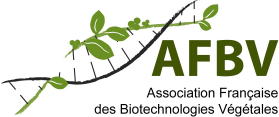New genomic techniques (NGTs) are key to achieving greater sustainability of agriculture and food sovereignty in Europe.
Ambitious objectives have been set at the European level to ensure food sovereignty while maintaining the sustainability of its agriculture, which has to cope with climate change while reducing the use of inputs including water, fertilizers and plant protection products.
To achieve these goals, a continuous flow of innovation is needed. This requires accelerating the development of new plant varieties adapted to the environmental constraints described above. This presupposes that these new varieties can withstand environmental stresses such as drought or extreme temperatures (abiotic stress) and be resistant to diseases and pests (biotic stress). The rapid introduction of such varieties will only be possible if breeders have access to all the available techniques without preconceptions and under the right conditions. However, this is not currently the case in Europe, since the GMO legislation applicable to NGTs, which dates back to 2001, is not adapted to these recent technologies.
Many results are already published and the first NGT varieties have become available
The potential of NGTs is already demonstrated by the number of scientific publications worldwide. More than 800 are currently listed in the EU-SAGE1 database covering the range of traits described above and applied to 70 different plant species. GMO legislation, which has already been adapted in several countries around the world, has authorized the marketing of the first NGT varieties such as a GABA-enriched tomato in Japan, a bitterless kale in the United States, or a reduced browning banana in the Philippines. More are to come if we consider, for example, the number of NGT plants listed in the USDA2 or Health Canada3 databases.
The Commission’s proposed regulation
Aware of this situation, the European Commission presented in July 2023 a proposal for the regulation of varieties bred using NGTs (targeted mutagenesis and cisgenesis). This proposal was eagerly awaited by all actors involved in the research and development of these new varieties in Europe. It provides that plants bred using NTGs and that could also occur naturally or be produced by conventional breeding techniques will not be subject to the EU’s GMO legislation. They would be subject to the regulations applied to conventionally bred varieties. These NGT plants would have to meet certain criteria based on the modified genome sequence. They would be verified by a competent authority, listed on a public database and their seed bags would be labelled « NGT-1 plants ». Other NGT plants would remain subject to the rules and requirements of EU GMO legislation, with a risk assessment tailored to take into account the diversity of their risk profiles and address the challenges of detection.
Need for expeditious adoption of the proposed regulation
Rejecting the application of NGTs to plants would prevent Europe from participating effectively,
together with other countries, in addressing the challenges facing agriculture worldwide. Europe must
have the ambition to remain a major player in food production in its own interest and in the interest
of the planet. We believe that the Commission’s proposed regulation of NGT plants meets the needs
of the stakeholders involved in the food production chains. The adoption of this proposal, subject to
certain clarifications, several of which have already been taken into account by the draft amendment
of the European Parliament’s ENVI Committee, and others which may be included at a later date in the
implementing acts provided for in the draft, must be implemented very quickly to allow the
development of the first NGT varieties before the end of the decade, thus helping Europe to achieve
the objectives it has set itself.
The signatories are available to provide you with further information and answer any questions you
may have.
Georges FREYSSINET
Président
Association Française des
Biotechnologies Végétales (AFBV)
afbv.secretariat@gmail.com
https://www.biotechnologies-vegetales.com/
Prof. Dr. Klaus-Dieter JANY Chairman
Association of Genomics and
and Genetic Engineering e.V. (WGG) jany@wgg-ev.de https://www.wgg-ev.de/
Prof. Dr. Em. Dirk Inze
Chairman
European Sustainable Agriculture Through Genome Editing (EU-SAGE) Dirk.inze@psb.vib-ugent.be https://www.eu-sage.eu/
Download the open letter with list of 500 scientists signatories









